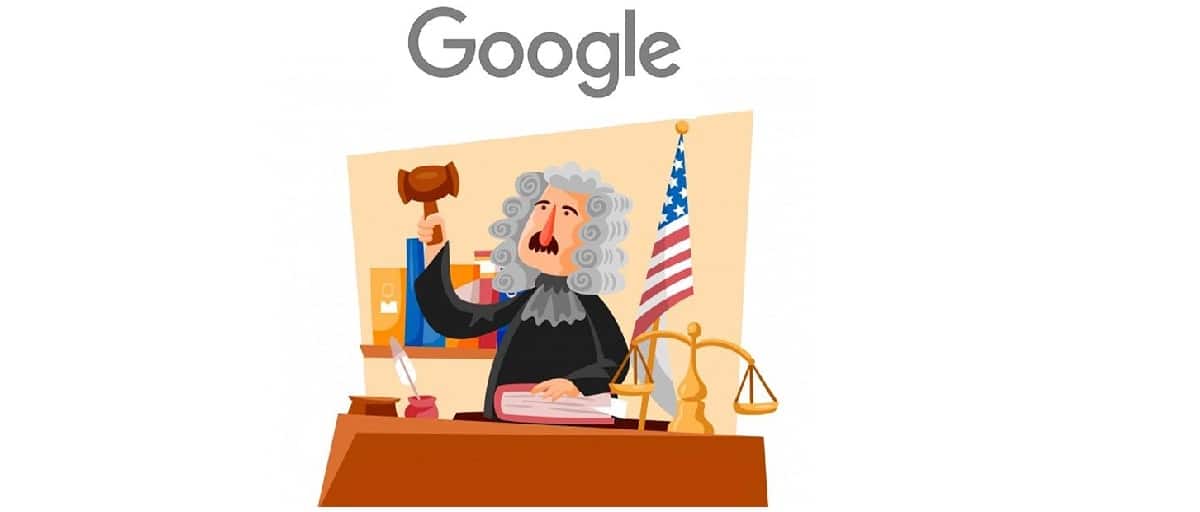
Google will face perhaps one of the most important lawsuits that even its opponents support it
The news was released recently that Meta, Microsoft, Twitter and other technology companies came to the defense of Google in a series of legal briefs filed Thursday in a US Supreme Court case that could fundamentally change the way the Internet works.
The companies iThey urge Supreme Court judges to address González v. Google, whose objective is to determine if online companies should be held responsible for the content they recommend to users, since the relatives of Nohemí González, one of the victims of the terrorist attacks in Paris in 2015 and in which Google is basically held responsible because Youtube recommended recruitment videos for ISIS.
They fear a revision of Section 230 of the Communications Decency Act, which they say could ruin the internet. Enacted in 1996, Section 230 of the US Communications Decency Act (CDA) helps protect online businesses from liability for what is posted on their platforms.
many experts believe that Section 230 is essential to the functioning of the Internet today. In recent years, Section 230 has become the target of legislation, with companies or online platforms claiming that an amendment to the section could have significant implications for the technology sector.
For now, the Section 230 continues to protect online platforms, such as Facebook, Twitter and Google, from legal actions related to the publications of their users (comments, reviews, announcements, etc.). However, the legal battle González v. Google, which is currently held in the United States, threatens to break this protection.
The recommendation algorithm de YouTube, owned by Google, is implicated and accused of promoting videos related to terrorism. The US Supreme Court is considering whether it is time to restrict this law, which was written before the Internet became a central part of everyday life.
But a host of corporations, netizens, academics and even human rights experts defended the Section 230 shield and asked the court to stop the case. In addition to Meta and Twitter, the group of companies also included Yelp and Microsoft, which are often rivals to Google, as well as Craigslist, Reddit, and a set of volunteer Reddit moderators also got involved. Even some of the most vocal critics of Big Tech in general, including the Electronic Frontier Foundation, have also come out as friends of the court to warn of the implications of such a lawsuit.
"A court ruling that violates the law would deprive these digital publishing decisions of essential and lasting protection from lawsuits in a way that illogically contradicts the way algorithms actually work," Microsoft said in its inquiry. Reddit and its moderators say a ruling allowing litigation against the tech industry's algorithms could lead to future lawsuits including against non-algorithmic forms of recommendation and lawsuits potentially targeting individual internet users. They warn of a serious precedent.
“The entire Reddit platform is based on users recommending content for the benefit of others through actions like upvoting and pinning content. The consequences of the petitioners' claim in this case should not be misconstrued: their theory would greatly expand the potential for internet users to be sued for their online interactions," read the submission by Reddit and its moderators. Yelp, which is a longtime antagonist of Google, told the court that his business depends on delivering relevant, non-fraudulent reviews to his users.
Thus, a lawsuit creating liability for recommendation algorithms could break Yelp's core features by forcing you to unselect all reviews, even those that may be manipulative or false.
“If Yelp didn't have the ability to analyze and recommend reviews without incurring its own responsibility, these fraudulent review submission costs would disappear. If Yelp displayed every review submitted, business owners could submit hundreds of positive reviews for their own business with little effort or risk of penalty,” writes San Francisco-based Yelp.
“Section 230 ensures that online platforms can moderate content to present users with the most relevant data from the vast amounts of information added to the Internet every day. It would take an average user around 181 million years to download all the data on the web today," Twitter argued. "If the mere act of displaying third-party content in a user's feed qualifies as a 'recommendation,' then many services will potentially be responsible for nearly all of the third-party content they host," writes Meta, owner of Facebook.